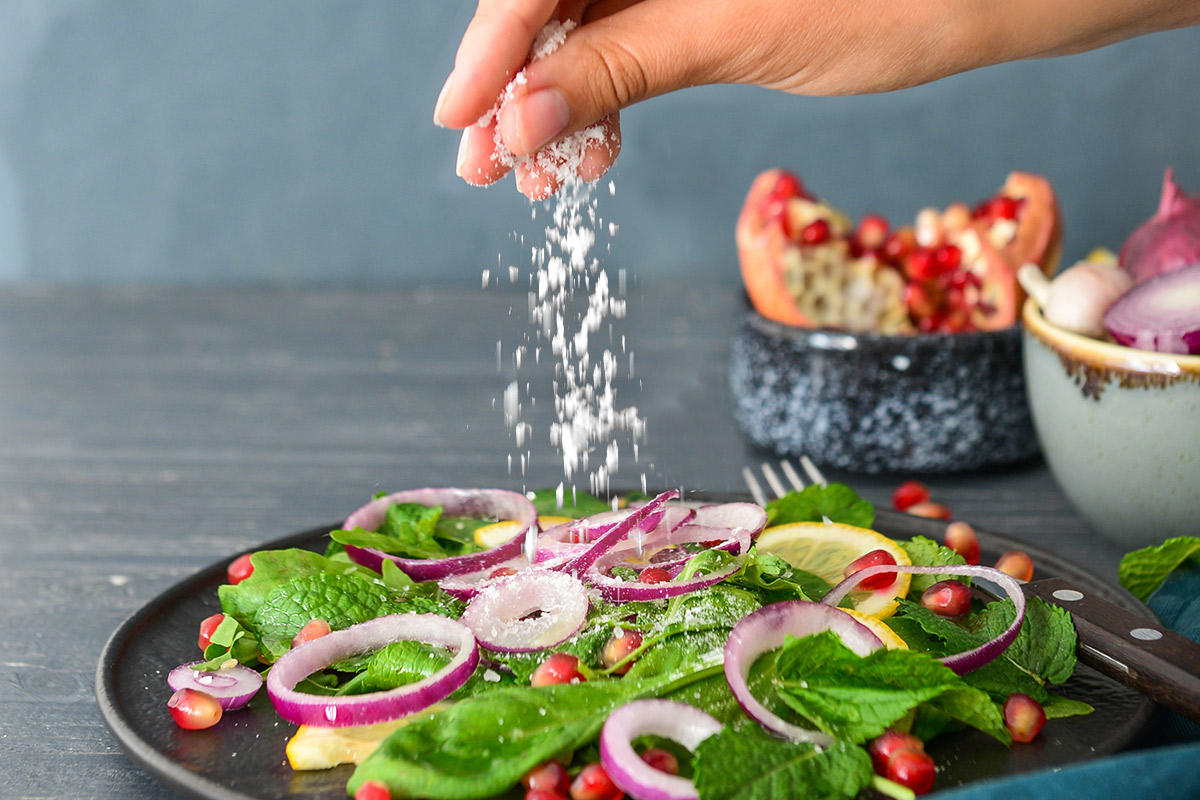The Covid-19 pandemic has seen the nation spend much more time at home in the past year with many of us turning our hand to getting creative in the kitchen.
As an ingredient, salt (sodium chloride) plays two important roles – firstly, it reduces bitter flavours and, secondly, it allows the aroma and taste of other ingredients in a dish to come through.
What does ‘Salt to Taste’ really mean?
When you open a cookbook, you’ll find numerous recipes that include the instruction ‘salt to taste’. We’ve seen these words a thousand times but what do they mean?
Adding salt to taste doesn’t mean simply throwing a ton of salt into a dish, it means adding salt to the recipe a little at a time, whilst continuing to taste throughout the cooking process. By slowly adding salt in this way, you won’t end up adding too much and will achieve an ideal amount of seasoning for your dish.
Training your palate is key to salting food. Ask yourself – how are the flavours are coming through? If your dish tastes bitter, a little salt might be just the fix it needs. However, add too much and your dish may become inedible, too little and it may be bland. The main issue with learning to season properly is that recipes don’t always tell you how to achieve the perfect balance.
Seasoning is about tasting and tweaking – it takes practice. When to salt also depends on what dish you’re creating. When tasting, consider two things: Are the flavours dull, and would it taste better with a little more seasoning? If the answer is ‘yes’ to either, then try adding a little salt to the dish, if it’s a ‘no’, you should be good to go.
Salt is far more than just a seasoning for our food, it forms part of a healthy, balanced diet and plays a crucial role in keeping our bodies in healthy working order.

